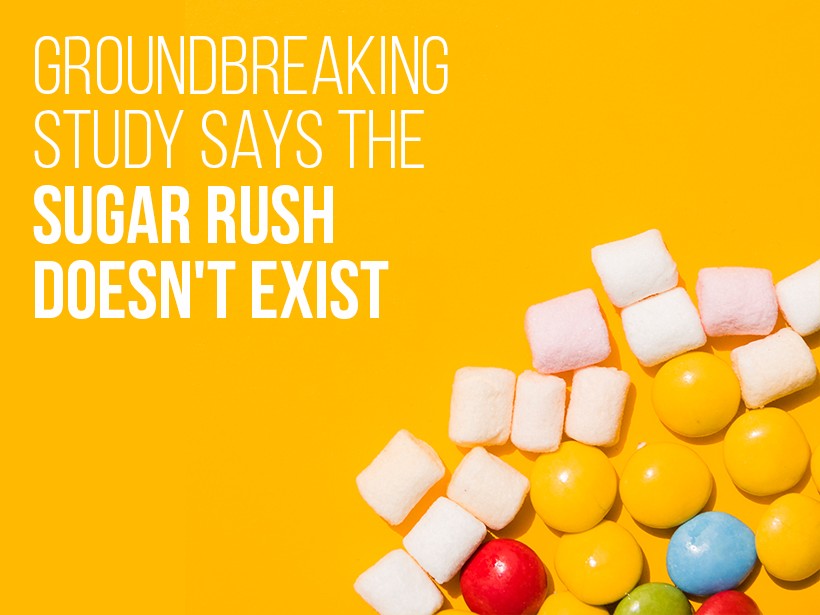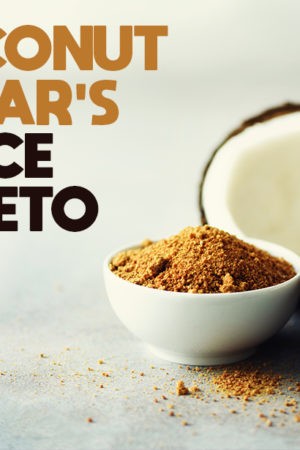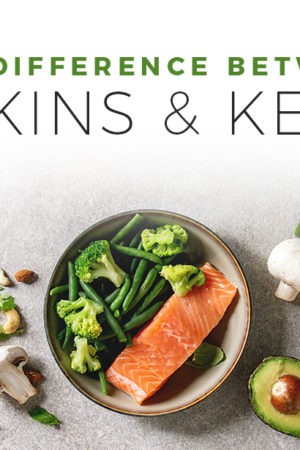For all of the benefits of keto dieting, one thing it does not claim to do is offer instantaneous energy boosts for that pre-exam crunch time or hours-long car drive. Of course, that’s not to say that keto doesn’t provide for these situations: the diet is designed to promote the kind of long-term energy that removes the need for such moment-to-moment pick-me-ups (which are always followed by crashes that are as sharp as the preceding highs).
For everyone not yet clued-in to the far-reaching benefits of keto, however, what is to be done in those sleep-deprived hours when work simply must be done? Many will turn to a Dr. Pepper or a Kit-Kat bar to take the edge off (or so they think). According to a groundbreaking new study, however, the truth about the sugar rush, that holy grail of late-night studying solutions, may be a bit more difficult to swallow.
The marketing myth of the sugar rush
According to the team at the University of Warwick and Humboldt University, the sugar rush (again like the holy grail) simply doesn’t seem to exist. Using a meta-analysis of 31 studies, the group of researchers determined that carbohydrate consumption offered “no positive effect on mood at any time-point following their consumption.” Instead, they said, carbohydrate consumption was in fact associated with increased fatigue and lower levels of alertness within the first hour after eating or drinking. In other words, sugar consumption was determined to produce exactly the opposite effect that soda and candy industry commercials have been pushing for years.1
No one can deny that we’ve been conditioned to turn to sugary snacks as a fix for foggy-headed afternoons. In their effort to promote this idea to its dystopian extreme, Snickers just came out with an app that scans your social media for signs that you’re feeling down and offers you, as a solution, a candy coupon. The idea leaves little need for further comment.2
Bidding farewell to sugar-coated falsehoods
This new evidence, however, suggests that we have been collectively duped. “The idea that sugar can improve mood has been widely influential in popular culture, so much so that people all over the world consume sugary drinks to become more alert or combat fatigue,” said Dr. Konstantinos Mantantzis, one of the study’s authors. “Our findings very clearly indicate that such claims are not substantiated. If anything, sugar will probably make you feel worse.”3
The authors of the study said that they hoped their results would contribute to a change in perception surrounding the supposed benefits of sugar consumption. Indeed, if the kick we were hoping to get out of a sweet snack doesn't exist, it makes you wonder what benefits remain. Rather than turning to caffeine and other flawed methods for eking out a little bit of energy from the body, it might be time to switch to keto and pursue a diet that promotes regular, long-term energy consumption.
NUTRITIONAL DISCLAIMER
The content on this website should not be taken as medical advice and you should ALWAYS consult with your doctor before starting any diet or exercise program. We provide nutritional data for our recipes as a courtesy to our readers. We use Total Keto Diet app software to calculate the nutrition and we remove fiber and sugar alcohols, like erythritol, from the total carbohydrate count to get to the net carb count, as they do not affect your blood glucose levels. You should independently calculate nutritional information on your own and not rely on our data. The website or content herein is not intended to cure, prevent, diagnose or treat any disease. This website shall not be liable for adverse reactions or any other outcome resulting from the use of recipes or recommendations on the Website or actions you take as a result. Any action you take is strictly at your own risk.
- California Pushes for Cigarette-Like Warning Labels on Soda - July 1, 2019
- Is a Slowdown in Australia's Sugar Consumption a Sign of More to Come? - June 24, 2019
- Groundbreaking Study Says the Sugar Rush Doesn't Exist - June 12, 2019































